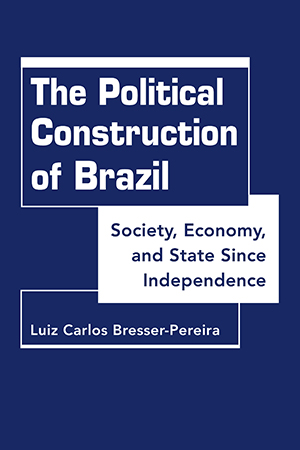Spanning the period from the country’s independence in 1822 through mid-2016, Luiz Carlos Bresser-Pereira assesses the trajectory of Brazil's political, social, and economic development. Bresser-Pereira draws on his decades of first-hand experience to shed light on the many paradoxes that have characterized Brazil's polity, its society, and the relations between the two across nearly two centuries.
Luiz Carlos Bresser-Pereira is professor emeritus of politics and economics at the Getulio Vargas Foundation. In addition to his long academic career, he has served as Brazil's minister of finance, minister of federal administration and state reform, and minister of science and technology, and also as secretary of the government of the state of São Paulo.
"Bresser-Pereira's new book is bound to be a classic in the political economy literature on Brazil." —José de Arimatéia da Cruz, Latin American Politics and Society
"A magisterial history of Brazil emphasizing economic phases and industrial policies.... The author traces the theoretical origins and innovations of the neo-developmentalism school of political economy, drawing on extensive research in Portuguese not easily accessible to American readers (and admirable English translation enhances readability). The book is less a standard historical narrative than a retrospective on Brazil's past economic and political struggles interpreted through the theoretical lens of new developmentalism."—Choice
"A big and bold book by a leading Brazilian public intellectual and scholar-practitioner. Whether or not one agrees with his conclusions, Bresser-Pereira reaches deep into the history of the turbulent twentieth century to set the terms for a new debate on Brazil's development in the twenty-first."—Matthew Taylor, American University






